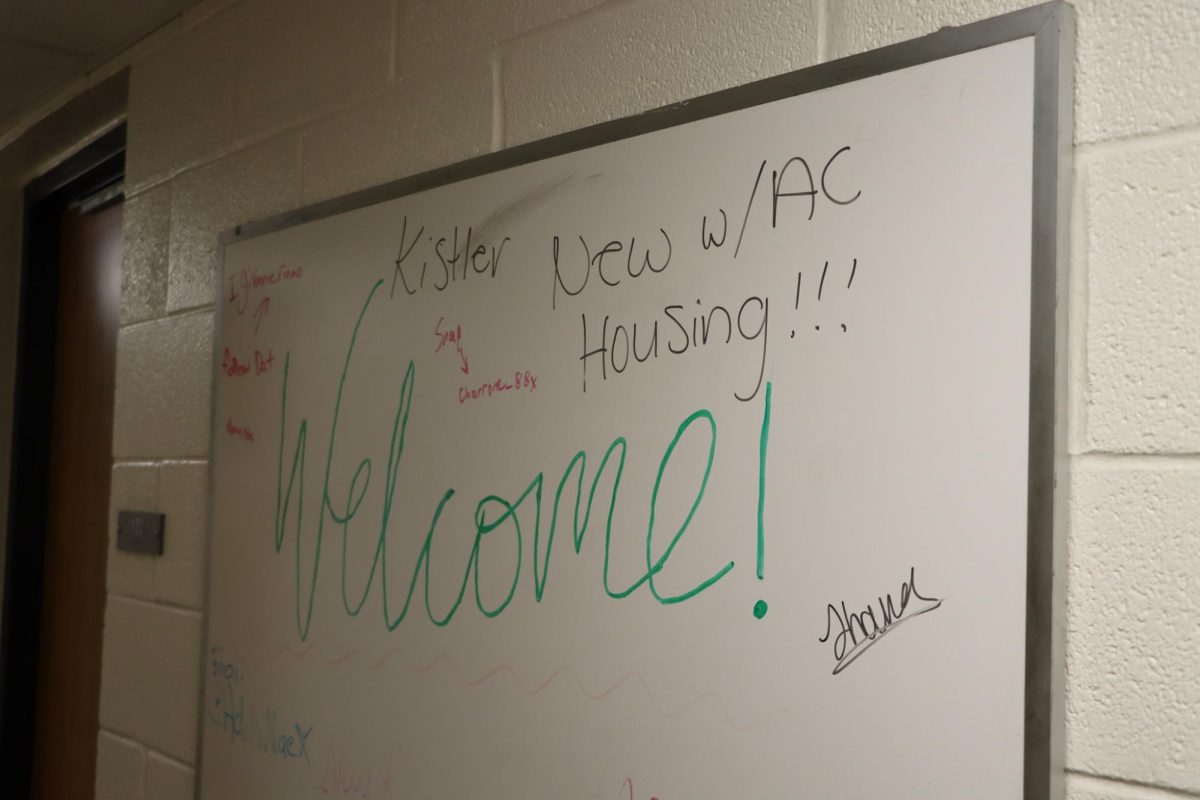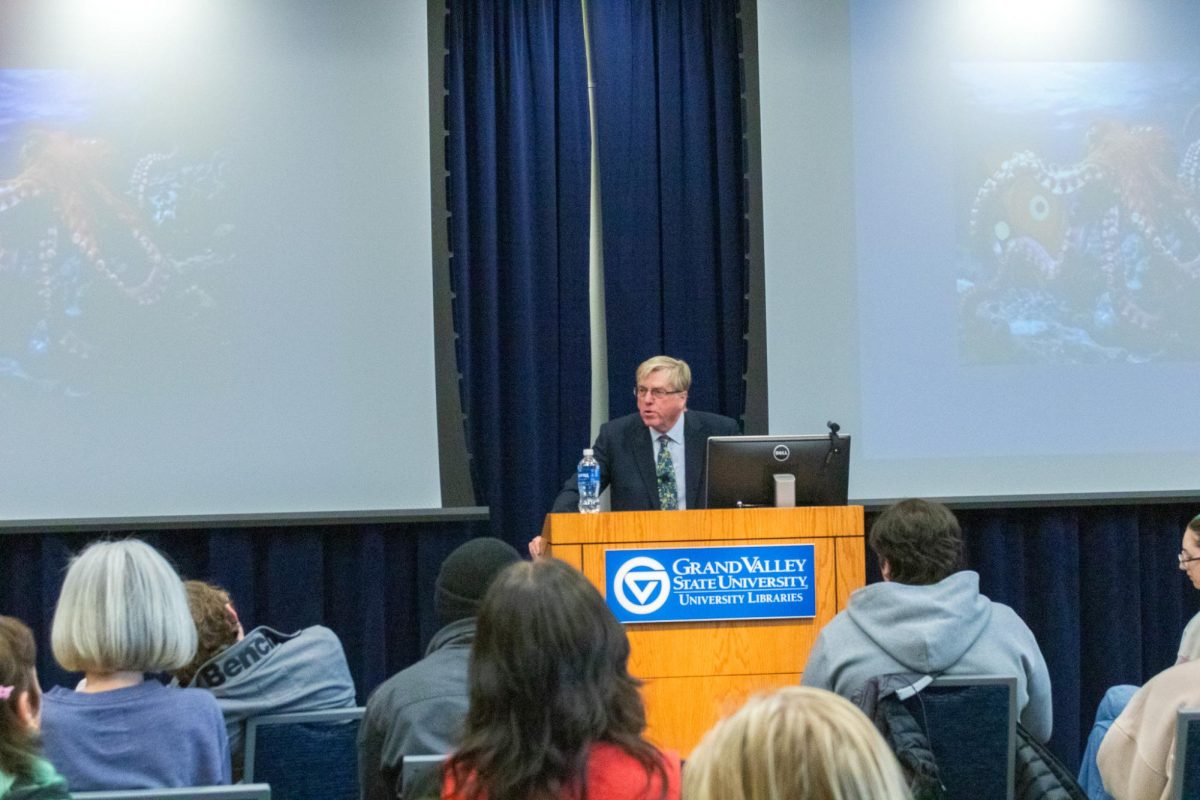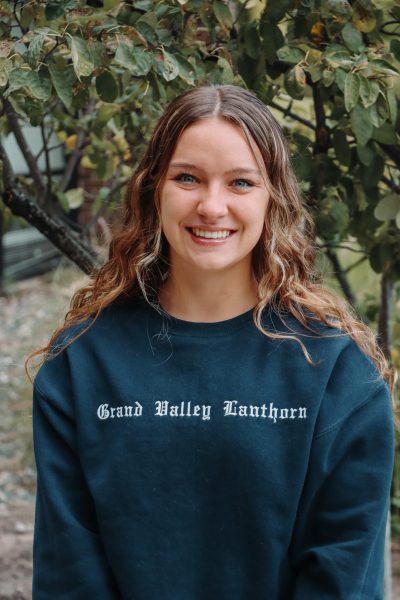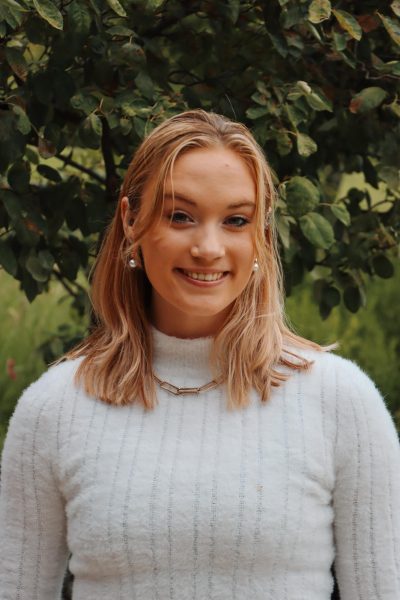With more than 7,000 incoming students and even more returning students coming to Grand Valley State University this fall, Housing and Residence Life is facing new on-campus housing challenges.
GVSU’s residence halls are over capacity. The influx of students signed to campus living contracts caused GVSU’s Housing and Residence Life to make adjustments to existing housing structures to increase room occupancy. This meant putting students in make-shift rooms in converted halls and lounges and housing more than 100 students in off-campus apartments leased by the university. How the university has addressed and managed the issues related to overcrowding has created new challenges for life on campus.
Residents who were either willing or required to live on campus are feeling the effects of the increased student population. First-year student Katie Wheeler felt the impact even before she moved onto campus.
Wheeler was originally assigned to Kistler Living Center, a traditional style dormitory located with the designated freshman-only accommodations on the north campus.
However, upon hearing from her resident assistant, Wheeler learned she was assigned to a study room that was converted to a quad (a four-person room) and her accommodation would not be what she expected.
“Basically, (the RA) told us they were study rooms like when she had moved in. They put kids in students’ rooms and like four people with all the furniture and everything in there,” Wheeler said.
After hearing about their assignment, Wheeler called GVSU Housing “every day” to attempt to switch her room and was eventually reassigned to Murray Living Center, one of the apartment-style dorms located on the south campus. There she was assigned to a two-bedroom, one-bathroom apartment, which typically would only house two students. However, this year her room has four students, two students per room.
“It kind of stinks because we can’t unloft our beds, and it’s pretty tight. The kitchen table has two chairs, it doesn’t have four so it kind of makes it hard when we all want to eat or like you know, just having like people over or anything like that,” said GVSU freshman Marissa Diotte, one of Wheeler’s roommates.
Both Wheeler and Diotte said that Murray Living Center does offer certain benefits, like air conditioning and close proximity to many other freshmen in the living center. Additionally, Diotte said she is paying the same amount to live in Murray as she would in a suite-style because of the meal plan she chose when signing with campus.
According to GVSU’s website, the university has 6,012 beds on campus, including both freshman and upperclassmen housing accommodations. This year there are 4,200 freshman students with campus housing contracts alone which fills many of the previously allotted number of beds on campus.
The situation is compounded by a 2021 policy instituted by GVSU requiring first-year non-transfer students to live on campus. First-year students who do not wish to stay in on-campus housing accommodations must apply for an exemption.
If an exemption is not complete, students who are “not in compliance” will be charged a “Non-Compliance fee” that costs the same as “traditional style housing and a basic meal plan,” which is approximately $5,085. Exemptions from living on campus as a first-year are only guaranteed if a student is two or more years out of high school, has primary or joint custody of a minor child or children, is married, will commute from the residence of a parent or primary guardian, or is a veteran. Other requests can be made but are not guaranteed.
GVSU Senior Tanner Hamilton, an RA at South Apartments on campus, said the requirement to have first-year students live on campus is meant to help students have an easier transition to college life, and the university is making changes to accommodate the influx of students.
“We just don’t have the space,” Hamilton said. “What I have heard from other RAs is that there are just extra beds being put into rooms like a four-person might become a five or a six-person or a two-person might become a four-person, I think that’s the most common one. It’s just physically adding more beds into spaces that are not designed for it.”
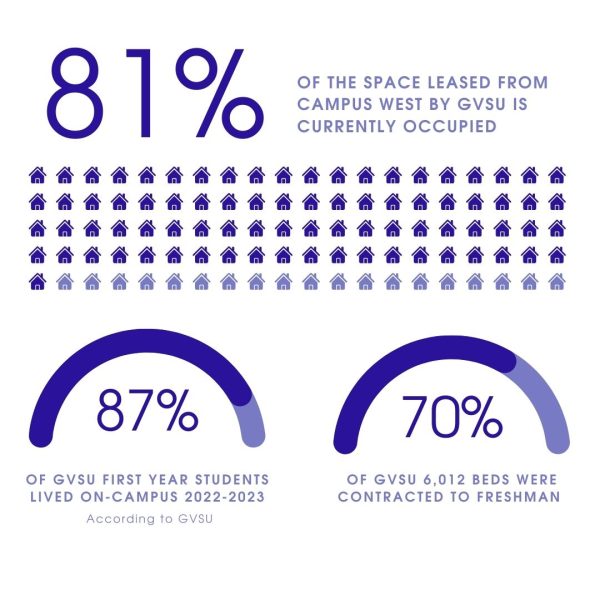 GVSU Housing had to place some students, primarily upperclassmen and transfer students, that applied for on-campus housing into an off-campus housing complex called Campus West.
GVSU Housing had to place some students, primarily upperclassmen and transfer students, that applied for on-campus housing into an off-campus housing complex called Campus West.
Kyle Boone, director of Housing and Resident Life at GVSU confirmed the university does not own the space but has a leasing agreement with the complex, renting 130 beds (about 105 filled) reserved for overflow of individuals signed on-campus. Boone said sending students off campus and converting lounge areas was not the first option they considered when revamping freshman housing.
“I think enrollment did a phenomenal job securing interest. It was our job to take that information and say, if you are interested in living on campus we’ll find an option,” Boone said. “The issue is when you do that, you may displace some people so we had to look off campus for some options, we have at least some 100 beds off campus that we’re leasing to accommodate some students.”
Roman Corneanu is a junior transfer student who was placed in Campus West. Originally, Coreanu applied for campus housing to live in a two-person unit in Laker Village, the townhomes on campus, and was placed at Campus West into a four-person unit instead.
Corneanu said there are some downsides of getting moved to Campus West: more people in his unit than he originally requested and a further commute to classes. However, he sees mainly positives from his experience.
“I get free parking here, which is a thing I didn’t expect. I thought I would have to leave my vehicle at home because I wasn’t really anticipating on paying $200 for parking (as an on-campus resident),” Corneanu said.
Coneanu also noted the student housing units at Campus West do not have RAs assigned to them as all locations on campus do. Hamilton said because the university is now renting the units at Campus West the Grand Valley Police Department (GVPD) is able to patrol this area as an added measure of safety.
Boone said GVPD is an asset to the housing office, and that even though some residents might be physically off campus they are still valuable members of the on-campus community.
“I share that housing can’t operate only within housing. So any decision we make impacts the greater campus community,” Boone said. “So once we decided or thought there may be an off campus relationship, we had to involve Chief DeHaan (of GVPD) in our conversations.”
In addition to housing concerns, students have felt the effects of overcrowding on campus in other areas like parking and dining.
“I’ve seen people come into class late because in years past they were able to, you know, make it to Panda Express on time or something and they haven’t been able to now because there’s just so many extra people waiting in line,” Hamilton said.
Many RA’s are preparing for more-than-usual disagreements between roommates, due the larger amounts of people living together in close proximity. Murray Living Center RA Carter Betchel said he had all of the students under his responsibility sign very detailed, specific roommate agreements in their first floor-wide meeting during welcome week in hopes of mitigating as much roommate conflict as possible.
“The biggest challenge comes from the fact that we are extremely full and residents are now living in close quarters with their roommates, especially in the two bedroom, four person dorms. The combination of those two means that roommate conflict is more likely to come up and when it does we are significantly less able to offer room changes,” Betchel said. “I have been very clear that my residents need to start making a plan on how to live together peacefully.”
Boone said he doesn’t see the new freshman housing accommodations as an issue, but as an opportunity to lead students to personal growth.
“I have a lot of hope in my leadership, and I hope that students engage, I hope they see conflict as an opportunity to grow, that they will see differences as a chance to expand,” Boone said.
Many students said they appreciate the adaptations GVSU has made in terms of housing accommodations. However, students expressed that in order to avoid an overpacked housing situation the university could have accepted fewer people in order to stay within the accommodations they had on campus.
Boone said he does not expect housing to receive any less interest in the coming years, though he cannot guarantee how the situation will continue to be handled in the future.
“I wish I had a magic ball,” Boone said. “Our occupancy strategy is the enrollment strategy. If they (campus recruitment) decide to bring more students in, we’ll prepare for more students.”
“I think that GVSU has an interesting challenge on their hands and I am very interested to see how the rest of the year will play out with all of these changes,” Hamilton said. “It’s something we have never experienced before and it’s a new challenge for everyone in housing and for students as well. I think it will be a really interesting year.”



